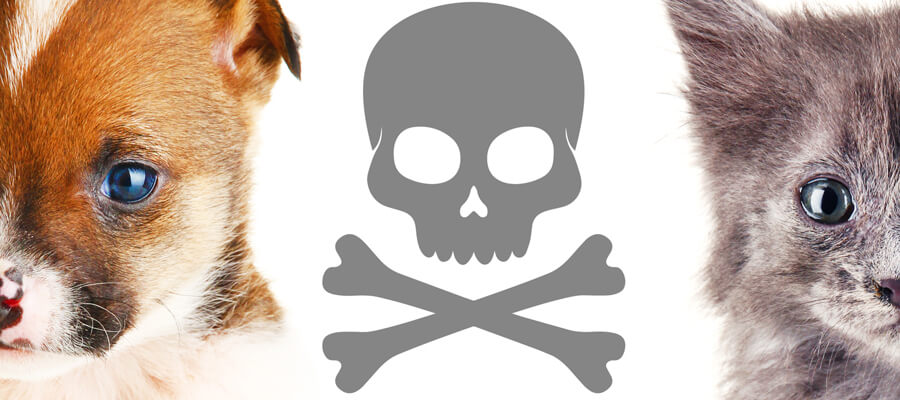Pets are important members of our families, and we always want to ensure their safety and well-being. One way we can do this is by preventing poisoning. Pets can be exposed to toxic substances in their environment, and taking steps to keep them safe is important. Below are some tips for preventing your pet from being accidentally poisoned.
- Keep toxic substances out of reach.
The first step in preventing poisoning in pets is to keep toxic substances out of reach. This includes household cleaners, pesticides, medications, and certain foods. Be sure to store these items in cabinets or other secure locations where your pets cannot access them. - Be aware of toxic foods.
Certain foods can be toxic to pets, including chocolate, caffeine, grapes, raisins, onions, garlic, and xylitol (a sugar substitute commonly found in gum and other sugar-free products). Be sure to keep these foods out of reach of your pets and dispose of them properly. - Check your inside and outside plants.
Some plants can be toxic to pets if ingested, including lilies, azaleas, daffodils, and tulips. Check your plants to ensure they are safe for pets, and if you are unsure, consider consulting a veterinarian. - Keep pets away from areas being treated with chemicals.
If you are using pesticides or other chemicals in your yard or home, keep your pets away from those areas until the chemicals have dried or dissipated. - Keep medications out of reach.
Just like with household cleaners and other toxic substances, it is important to keep medications out of reach of pets. Even over-the-counter medications can be harmful to pets if ingested in large quantities. - Consider pet-proofing your home.
Pet-proofing your home can help prevent poisoning in pets. This includes securing garbage cans, keeping toilet lids closed, and keeping small objects, such as coins and toys, out of reach. - Know the signs of poisoning.
Knowing the symptoms of poisoning in pets is important so you can seek veterinary care immediately if necessary. Signs of poisoning can include vomiting, diarrhea, lethargy, loss of appetite, seizures, and difficulty breathing.
Preventing poisoning in pets is crucial for their safety and well-being. By taking steps to keep toxic substances out of reach, being aware of toxic foods and plants, keeping pets away from areas being treated with chemicals, keeping medications out of reach, pet-proofing your home, and knowing the signs of poisoning, you can help keep your pets safe and healthy.
